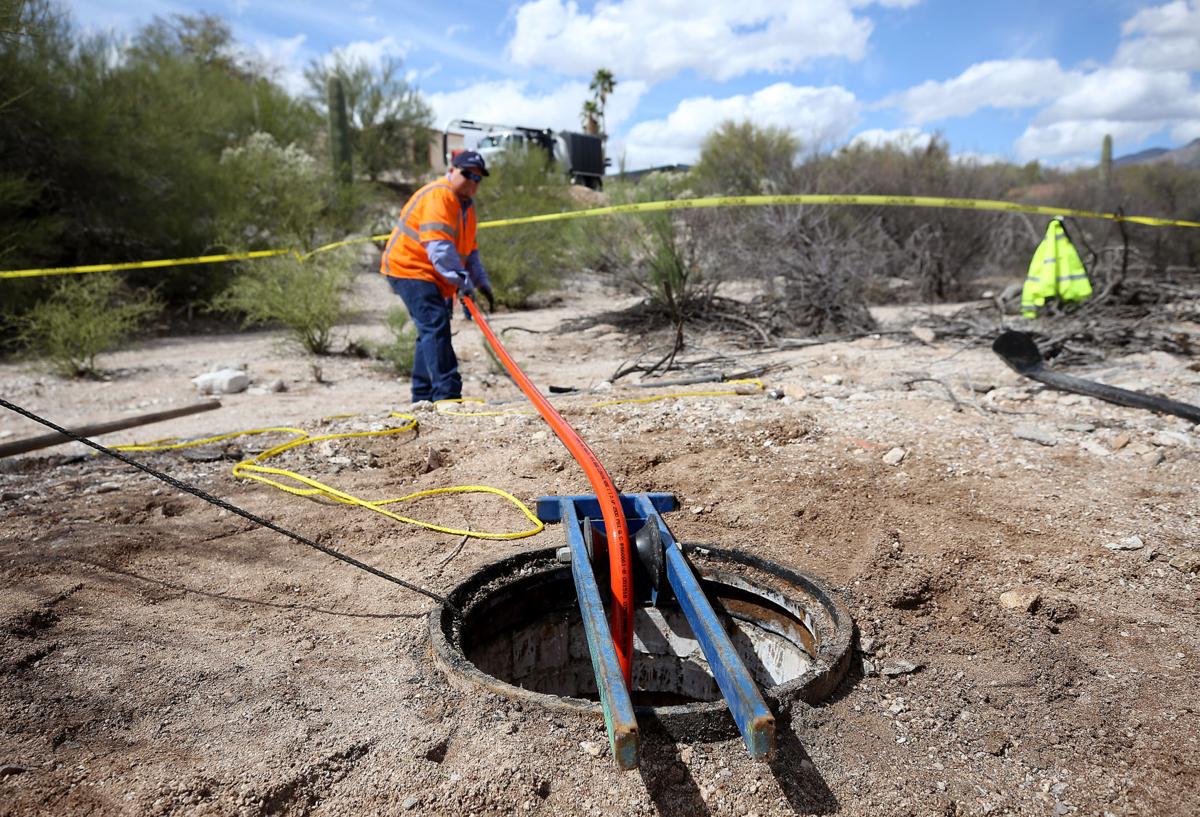Hoarding toilet paper may not be such a victimless crime after all.
At least one local plumber has reported a surge in service calls for toilets clogged by, um, alternative products in the hands of the desperate and paperless.
For reasons that still defy explanation, fears over the spread of the coronavirus have led to a run on toilet paper across the United States.
That has left some poorly provisioned members of the public with no choice but to get creative with their cleanliness.
But baby wipes, old rags, paper towels, napkins and other products that don’t readily — if ever — dissolve in water can easily plug residential sewer systems and lead to even bigger problems downstream.
That’s why the Pima County Regional Wastewater Reclamation Department took to social media this week to remind people what can and cannot be flushed.
“The only things you should flush are pee, poop and toilet paper. Those are three Ps,” said department spokeswoman Caroline Vargas.
Anything else can plug sewer lines and “cause the system to back up into homes, onto the streets or into the environment,” she said.
Some brands of wipes even advertise themselves as flushable, when “they, in fact, are not,” Vargas said. “They don’t dissolve in water.”
If these wads of material manage to make it through your pipes, they can collect in the larger sewer system and form something called a “fatberg,” which is every bit as disgusting as it sounds.
Picture a mass of wipes, dental floss, congealed cooking grease and other gunk large enough and hard enough to block the flow of other sewage.
Some major cities have reported massive fatbergs, including one in London in 2017 that weighed 130 tons.
Tucson has never seen anything remotely like that.
Vargas said county maintenance crews do a good job of keeping the pipes clear, but with a system stretching roughly 3,500 miles, they can’t be everywhere at once.
And at least a few of the roughly 30 so-called “sanitary sewer overflows” the department handles each year are the result of wipes.
Vargas said there haven’t been any wipe-related overflows since the current run on toilet paper began, and they’d like to keep it that way.
“That’s why we ask the public to be cognizant” of what they flush, she said.
So stick to the three Ps, people.
And when you go to the grocery store, maybe leave behind a few rolls for somebody else.





